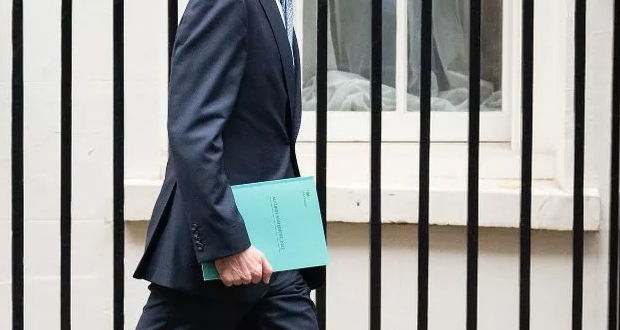
Tarun Gidoomal
The company’s UK general manager Tarun Gidoomal said: “Britain’s small businesses and retailers are straining under the numerous changes and challenges they’ve faced over the past year including Covid, inflation, rising energy prices and now fiscal drag. A staggering 97% of independent British retailers believe the government has not provided enough support amidst the ongoing ‘permacrisis’ of 2022, and that figure has likely risen even further after today’s statement.
“Hunt saying he will ‘soften the blow’ on businesses is not enough, and independent retailers up and down the country need more in order to survive the ongoing ‘permacrisis’ of 2022.
“If the government fails to extend the Energy Relief Scheme, as was missed out of today’s budget entirely, the majority of independent retailers (89%) believe they will suffer as a result, with almost half of all independent retailers (42%) saying that this would cause them to close or consider closing.
“The closure of so many great independent retailers would have huge and far reaching consequences for the communities who depend on these shops – and the social infrastructure they provide, as well as Britain’s economic recovery out of what is being predicted to be our longest ever recession.
“We’re calling on the government to revisit today’s budget to offer more for small businesses to create greater stability and to promote growth amongst British high streets. Doing nothing is not an option.”

Martin McTague
Focussing on the taxation measures announced in the Autumn Statement, national chair of the Federation of Small Businesses (FSB), Martin McTague, said: “Today’s Budget is high on stealth-creation and low on wealth-creation, piling more pressure on the UK’s 5.5 million small businesses, their employees and customers.
“While tackling inflation is essential, so are measures to create conditions for prosperity, growth and support enterprise. Today is a missed opportunity to avoid further economic slowdown.
“Small businesses, which account for more than 16 million jobs in the UK, were already facing an acute cost of doing business crisis through soaring costs, falling revenues, shrinking availability of affordable finance, and a rise in invoices being paid late.
“On top of all that, they now face even higher taxes, cuts to innovation, and a recipe for a longer and deeper recession.
“The slashing of dividend taxation allowances will be a bitter blow to hard-working owners of small limited companies trying to pay the bills, earn a living and grow their business. This is a group which was excluded from direct support during the darkest days of Covid, then more recently pushed out of the cut in National Insurance.
“The changes set out by the Chancellor will leave a company director earning £40,000 a year more than £500 worse off than an employee earning £40,000 and paying income tax and national insurance.
“Freezing the threshold for employer National Insurance at a time of such high inflation is a stealthy hike in the jobs tax, just as recessionary pressures threaten an increase in unemployment. Alongside the understandable rise in the Living Wage, this Budget will ramp up the costs of employment without offsetting that with measures to reduce other business costs.
“Stealthily freezing the VAT threshold at a time of sky-high inflation will both drag more struggling small firms into scope for the tax, while disincentivising others from growing. FSB’s research shows one-in-four (24%) of small firms and the self-employed are held back by the VAT threshold.
The few saving graces here are the retention of the Employment Allowance at its current level, which was hard fought for by FSB, and the continuation of the lower National Insurance rate for the self-employed and employees.
“It is welcome that the energy support package for small firms will remain in place until April, helping them through a very tough winter ahead. However, going forward, continued support should not be viewed through the narrow lens of specific sectors, but rather based upon the size of a business.
“The chancellor may consider that today’s Statement has steadied the economic ship after recent turbulence. But it is now time to raise the anchor, re-start the engines, and set a course towards economic recovery, promoting enterprise and innovation, and future prosperity. Whether that direction is set in the coming months is a decision which will be make or break for many small businesses.”
 Talking Retail Grocery and product news for independent retailers
Talking Retail Grocery and product news for independent retailers






